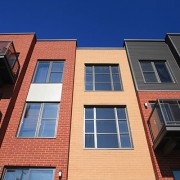A Coop and Condo Primer
by P. Andersen, 9/10/14
Here in the region surrounding New York City, we have an abundance of both Condos and Coops. In New York City limits, Coops account for 85% of all available apartments. The buildings look the same on the outside, but the ownership structure is very different. What do you need to know before buying an apartment in our area? Let’s take a look at the Condo and Coop situation.
Condos and Coops, Coops and Condos…
We will start simply with the condo, and go from there. A Condo is like any piece of real property you may own, such as a house. You are buying a parcel of property, and that apartment is considered property in your name. A Coop, however, is a bit different. When you buy a Coop, you are actually not buying a piece of property. Rather, you are buying stock in the corporation that owns the apartment, and leasing the apartment from the Coop.
A Condo owner is responsible for their own real estate taxes and its share of the common charges associated with the maintenance of the property. A Coop owner, on the other hand, pays monthly maintenance to the building corporation for maintenance, building operation, property taxes, and underlying building mortgages.
Here are a few more things to think about…
- Buying a Condo is a contract between a buyer and a seller, but buying a Coop requires the board approval, and the process can be more time consuming and demanding. Horror stories abound, so be prepared with every financial document they request to make the process go smoothly.
- A condo generally has a higher value than a comparable coop, but closing costs may be higher with regard to title insurance and other taxes. Also, monthly fees are generally higher with a Coop, due to underlying mortgage payments which are included (based on shares).
- Coops may require a larger down payment, then a comparable condominium, often 20%, causing a barrier to entry for some home buyers.
- Sub-letting your apartment is far more difficult in a Coop, due to board approval and financial requirements.
Insuring your Condo or Coop
Insuring your Condo OR Coop is very different than insuring your free standing home. The building itself will have a policy that covers the property’s common areas, and your insurance is generally meant to cover anything from the “walls in”. This unique situation is why a special form was developed, the HO-6. Freestanding homes utilize the HO-3 form, and renter utilize the HO-4 form – the HO-6 is designed for both Condos and Coops, and their unique requirements.
One last note regarding insurance. Take a good long look at the association documents, just to be sure you know what the association policy is covering. It is always better to go in knowing all the facts, than to be surprised when a claim happens.
So, if you are buying a Condo or a Coop, be it in New York City, Westchester, Connecticut, or anywhere else for that matter, do your due diligence beforehand with regard to your homeowners insurance policy. Give us a call, we would be happy to answer any questions.



